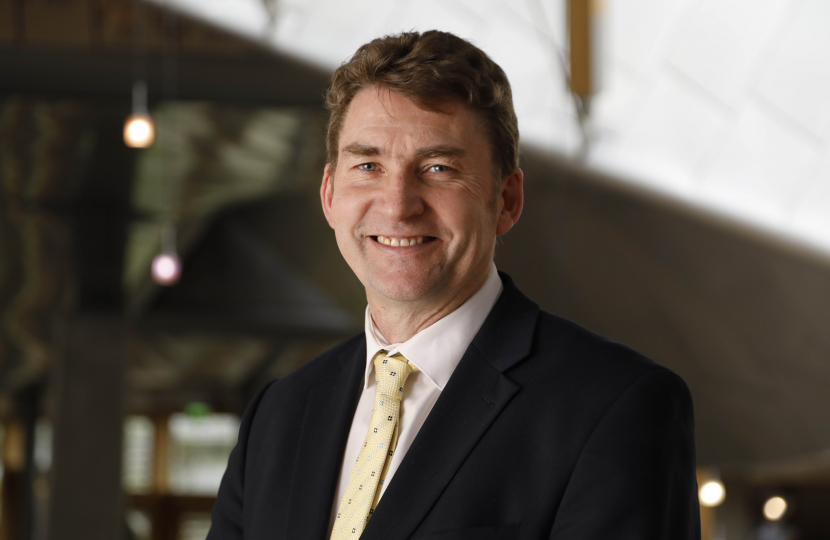
South Scotland MSP Brian Whittle will join top researchers and constituents from across Scotland on the 21st-25th March for Evidence Week in Holyrood.
In response to calls from Scottish voters and within Holyrood, the Scottish Parliament’s Information Centre (SPICe) has partnered with Sense about Science to deliver the first-ever ‘Evidence Week’ in Holyrood on 21-25 March. The event, which has been successful in other parliaments in the EU, UK, and Ireland, will see MSPs joined by researchers and constituents to discuss how the evidence used to make policy decisions in Scotland is scrutinised.
The event will open with people from across Scotland putting their questions directly to a panel of influential policymakers, including chairs of prominent committees, and their own MSP. Constituents have the opportunity to ask for the evidence on issues that matter to them, by submitting questions in advance at Ask an MSP. Subjects raised so far include prison sentencing policy, the impact of Artificial Intelligence and automation on employment and the official response to the Covid-19 pandemic.
During the week, MSPs will be briefed by world-leading researchers on pressing policy issues in Scotland including climate change, homelessness and inequality, and the use of health and social data. Cutting-edge research being presented includes evidence on the effectiveness of Scotland’s pioneering devolved policy to improve refugee integration and monitoring the disparity in crimes rates in deprived parts of Scotland.
Rapid-fire sessions, meetings and workshops will equip MSPs and their staff with the critical tools they need to engage with policy evidence, and give them a network of reliable sources of data and analysis.
The people of Scotland rely on their representatives to scrutinise government policy. MSPs do not need a scientific background to scrutinise evidence, but must be empowered to ask the right questions of the data and information presented to them. Evidence week creates the environment and networks to support them in this vital work.
Brian Whittle MSP said:
“As someone who initially trained as an industrial chemist, I know the value of the scientific method in making decisions.
Now, as an MSP, having the ability to scrutinise and understand the wide and diverse range of information I’m presented with is key to doing my job well.
Throughout the Covid-19 pandemic and in my Environment, Biodiversity and Land Reform portfolio, being able to properly interpret scientific research and data has been vital to understanding the challenges we face, question the policies of the Scottish Government and develop my own ideas.
I’m excited to take part in Evidence Week at the Scottish Parliament and hope it will give me a chance to expand my knowledge”
Tracey Brown, Director of Sense about Science said:
“The work of Holyrood creates a far-ranging need to use and scrutinise evidence, from economic forecasts to environmental monitoring. In a single day MSPs may have to navigate complex policy issues such as homelessness, rural deprivation and indeed the pandemic, while approving measures to counter climate change and investigating the diverse issues affecting their constituents. Everyone depends on their resources and evidence know-how. This is why constituents and researchers are joining MSPs to launch Holyrood’s first Evidence Week.”
Graeme Cook, SPICe at the Scottish Parliament, said:
“Just as evidence-based policy development is important, so too is evidence-based scrutiny and law-making. These are key roles for the Scottish Parliament, and SPICe supports Evidence Week as an opportunity to shine a light on them.”
Professor Roger Halliday, Chief Statistician of the Scottish Government & CEO at Research Data Scotland, said:
“The pandemic has shown us the benefits of doing data right, doing data together, and doing data better. Faster analysis and evidence gathering to support decision-making means better outcomes can be delivered more quickly to Scotland’s citizens.”

